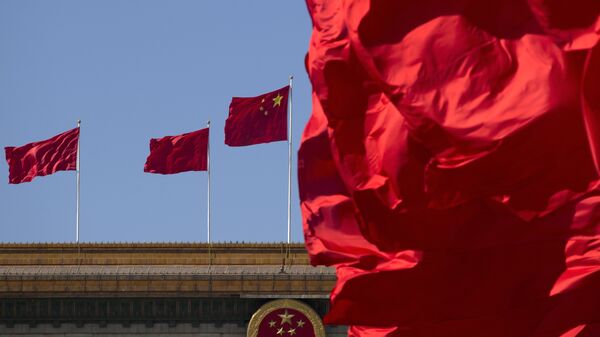Sputnik: How realistic is this plan by the United States and its allies to establish a joint project that can compete with China?
Zhiqun Zhu: It's too early to tell, because right now this idea is still at the discussion stage. Prime Minister Turnbull and President Donald Trump will discuss this when Turnbull visits the United States later this week, so I think at this stage, we don't exactly know the scale of this project, the objectives of this proposed project and most importantly we don't know how this is going to be implemented, so I don't think that right now this means much to China.
Sputnik: So what impact can this announcement have on the Chinese project?
Zhiqun Zhu: I don't think this is a challenge to China. I think that China's One Belt One Road project is open, it's inclusive and I think that China would welcome competition actually. I think competition is going to be welcomed by everybody including China, for those countries in different regions, I think they welcome different choices. Let's say China wants to build a road through a region with civil wars or terrorists, obviously, if other countries are involved with a greater international pressure, you'll see more security.
Sputnik: What's your take on the fact that some experts have said that it remains unclear whether the countries will have enough liquidity and money to invest in the project?
Zhiqun Zhu: Funding will be a big problem here. We all know that President Trump has the “America First” policy and where does the money come from? Japan and Prime Minister Abe has this Abenomics economic policy, it has achieved some success, but it has not in many aspects. India sometimes exaggerates its power. Australia is also very interesting, Australia trades extensively with China, and China has always been Australia's largest trading partner in the past decade or so. I don't think these countries will really disrupt their relations with China and, particularly, I doubt they will come up with any money to fund this massive project. I don't think this is an economic project, I tend to think that this is more a political, strategic, diplomatic project, because at the basic level you see the rise of China, you see the One Belt One Road from China, such an ambitious, extensive project. I think the United States and particularly Japan, India in Asia feel challenged, feel threatened so they have do something. So I consider this idea, this new proposed project from these four countries as part of their efforts to counter China's growing influence globally. I don't worry about whether they have money or not, I am more concerned about how this is going to lead to a strategic competition and rivalry and that's something I think we need to worry about.
Zhiqun Zhu: To some extent yes, because a part of the One Belt One Road includes this Maritime Silk Road that extends from South China to the South China Sea and all the way to South Asia and Africa. So, yes, if these four countries build their own program, it will be a rival to China's Maritime Silk Road and the South China Sea is exactly located in that area, so there will be some pressure on China. But I don't think this program is aimed at the South China Sea, I think this is a part of a broader, this bilateral, this four parties’ response to China's rise. At the fundamental level, I think, they don't know what to do about the rising power of China, so that's why they're initiating all these different kind of programs as a way to deal with the rise in Chinese power.
The views and opinions expressed by Zhiqun Zhu do not necessarily reflect those of Sputnik.




